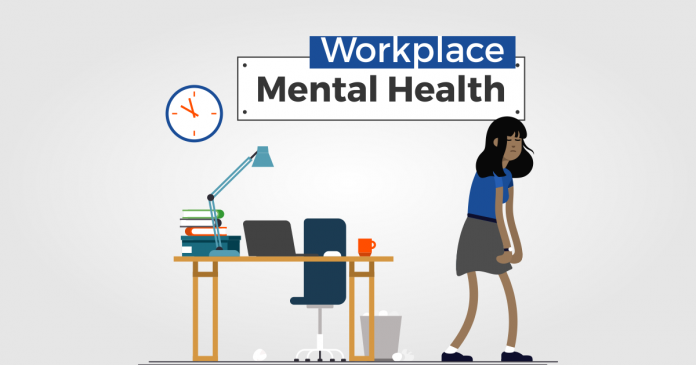Companies should rethink approach to mental well-being
As organizations contemplate the return to their workplaces and a new normal, leaders need to keep top of mind the mental health of employees as they transition to new ways of working amidst a period of heightened fear and uncertainty.
According to Mercer’s 2020 Global Talent Trends Study, only 45% of executives believe their workforce can adapt to the new world of work, yet only 14% have conducted an internal survey, interview or focus groups to understand what employees are thinking and feeling. Even before the COVID-19 pandemic, anxiety affected 60 million people in Southeast Asia alone, with close to 86 million living with depression.
With epidemics historically associated with a rise in depression and anxiety, the pandemic is expected to put significant stress on employees as they contend with new and added mental stressors including job insecurity, financial responsibilities, sick or unemployed family members, isolation and the disruption of social support networks. Last week, the United Nations warned of a looming global mental health crisis as a result of isolation, poverty and anxiety caused by the coronavirus pandemic. In the Mercer report, 36% of respondents said that employees working remotely are experiencing mental health issues due to social isolation and economic anxiety.
Against this backdrop, employers can do more to support their employees, particularly in areas like mental health and financial well-being. Ms Liana Attard, Multinational Client Group Leader, Asia, Mercer, said, “COVID-19 has exposed the gaps in outdated benefit plans. Many employers have had to reactively seek support to help employees manage caregiving and volatility in retirement savings, for example. “We expect COVID-19 will result in the modernization of plans to include, for example, mail-order pharmacy, ergonomic benefits for building a comfortable home-working space, new hospitalization cash allowances and 1 World Health Organization 2017 special caregiving benefits.
The more varied health and well-being resources in employer offers, the more workers feel energized and supported, and less likely they are to leave their employer.” According to the Mercer study, even though 61% of employees trust their employer to look after their well-being and 48% of executives rank it as a top workforce concern, only 29% of HR leaders have a health and well-being strategy. Ms Attard added, “Disruption brings opportunity – to reflect, reset and reinvigorate – reexamining business models, adopting more sustainable practices, adapting to new ways of working and embracing digital solutions to prepare for the future of work. Throughout all of this, it is an imperative to lead with kindness – engage, listen, and understand the impact to the employee experience.”
As the world marks Mental Health Awareness Week from 18 to 24 May 2020 with a focus on kindness, here are seven ways employers can support kindness and mental well-being in the workplace.
1. Lead with empathy. Build trust by demonstrating that leadership understands the employee experience. Gather input through surveys or focus groups and reflect that understanding back in communications.
2. Build community. Offer support through a variety of programs, such as virtual happy hours, allowing for vacation time, encouraging work-life balance, and supporting virtual social events.
3. Align benefits with needs. Determine what more you can do to ensure employees and family members have access to mental health providers and resources.
4. Offer digital options. Prioritize digital healthcare solutions and the accessibility to care and support. With physical distancing restrictions in place, virtual visits with coaches or licensed therapists are a critical program component. According to the Mercer Talent All Access COVID-19 outbreak spot survey in March, only 18% of employers are promoting telehealth or digital health options, and only 24% are promoting employee assistance plans.
5. Train managers. Provide front-line managers and supervisors with information and skills to recognize mental health needs and to connect people to appropriate benefit and community resources.
6. Link to local resources. Connect employees to local resources such as childcare, eldercare and housing. Mercer’s Health on Demand research indicates there is a gap between employers’ perception of how much their company cares for employees, and how much employees feel cared for. Sharing information about employee support programs, for example, can go a long way toward demonstrating empathy for your people.
7. Be a source of truth. Access to reliable information is more important than ever when employees are being bombarded with news from so many sources. Continue to communicate and engage with employees. Benefits are often complicated, and misunderstandings can not only cause unpleasant surprises for employees, but also harm your brand.




















